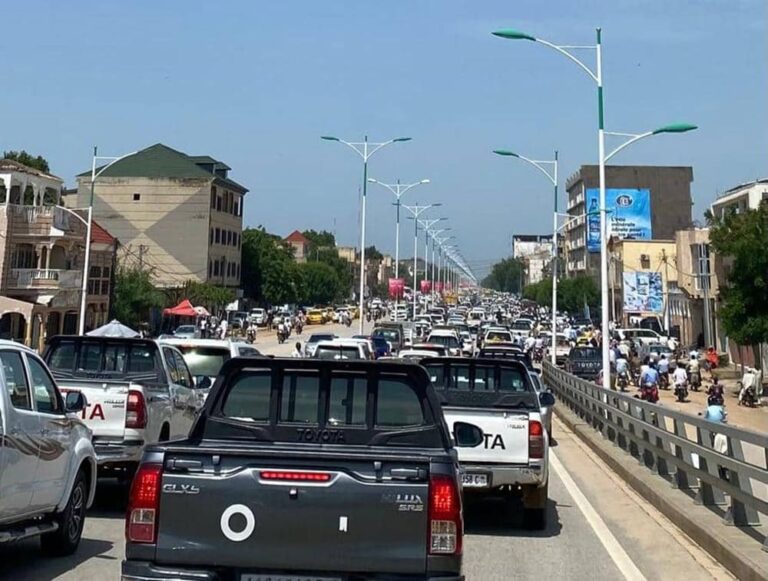Shops, schools, administration, businesses opened their doors, following the assurance given by the government that the situation was under control, the day after the incidents in the Chadian capital.
On the evening of January 8, psychosis took over Ndjamena. A group of unidentified youths attacked the presidential palace using bladed weapons, killing two Republican Guards and wounding two others. The response of the military was devastating: 18 of the 24 attackers were killed instantly.
“This is unheard of, attacking the Presidency with bladed weapons,” exclaims Theophile Madjiadoum, a student encountered on the grounds of the Ardep-djoumbal faculties in Ndjamena.
Condemnations and concerns
People in Ndjamena, ordinary citizens, politicians, and leaders of society have strongly condemned the violence. They all call for a culture of peace, dialogue, and the use of democratic means to take power.
“Today, we are in the digital age and there are many other legal ways to make ourselves heard. This culture of violence does not reflect the generation we are,” fumes Mbairamadji Desire, president of the Association of Young Rainbows for Social Stability in Africa (AJASSA).
The same tone is echoed by the Chadian Youth Parliament, which condemns the attack as a senseless act.
“You have to be an unconscious young person to attack the symbol of our sovereignty. Our country has
suffered too much from violence, it must stop,” insists its president Djamouss Bichara Bechir.
Beyond condemnations of the attack, concerns are expressed.
The language used by government spokesman Abderaman Koulamallah has sparked a wave of criticism.
“Even in situations like this, we end up labelling people as North-South. Coming from a government that never stops calling for living together, it’s deplorable,” laments a member of civil society.
In the districts targeted, fear is already palpable.
“Our only concern is the aftermath of the event. Because there, the government spokesman
presented the attackers as coming from a southern district of Ndjamena. So now, I’m really afraid that the army will pour into our districts to mistreat us,” confides a young resident of the Abena district in the 7th arrondissement.
“We need to stop presenting people from the south as those who want to destabilise Mahamat Idriss Deby’s power,” fumes another.
He cites the events of October 20, 2022, when the government dismissed the demonstrators as insurgents and the arrest in 2023 of a group of young people in Walia accused of an insurrection.
Despite these criticisms, Chadians of all stripes are calling for an end to violence.
“Today, more than ever, it is imperative that we put aside our divergences, our disagreements, and our differences. The security and peace of our country must be our top priority, because they transcend everything. Nothing on this earth is more valuable than peace,” says journalist Abdellati Mahamat Ibet.
A second night has just fallen on Ndjamena and normal activities have resumed in the hot spots of the capital.
No particular security measures have been witnessed in the city; even in front of the Presidency where accessibility has not been restricted.
At the major intersections, no searches are being conducted, indicating that the government has the situation under control.
ARD/ard/Sf/ac/fss/as/APA


